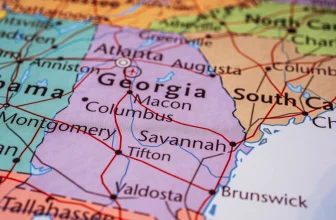
We’ve been saying for months that the seeds of major change are in the air. And now the moment has arrived: a new marijuana legalization bill is coming, and congressional Republicans are crafting it.
Advocates of the bill are framing it as a compromise between GOP and Democratic viewpoints on the issue of legalization, with GOP lawmakers opting for simple descheduling and Democrats preferring sweeping reform.
At the head of the legislative helm is Rep. Nancy Mace (R-SC). Her measure is titled the States Reform Act and is currently making the rounds through stakeholders to receive feedback. The final version is expected later in November.
The Lead-Up To This Congressional Bill
2021 has been the most active year on record as far as shifting views on cannabis reform. Despite this, there has been widespread doubt whether Capitol Hill GOP lawmakers would actually consider the comprehensive marijuana bills put forth by Democrats.
Without GOP support, any bill would struggle to make it to the president’s desk. Mace’s bill signals that Republicans are on board with change provided they can frame it in a way consistent with party values. This bill appears to do exactly that, appealing to the concepts of states’ rights and business interests. At the same time, it includes language inclusive of progressive values, such as tax policy and restorative justice.
Rep. Mace is a freshman in Congress and stood as the only GOP vote for a cannabis research bill for veterans on Thursday’s committee markup. Her bill is ambitious: it aims to remove marijuana from the Schedule I controlled substances list and set up a regulatory framework for it. The bill is dyed lightly red with its stipulations that existing state markets do not become burdened by new federal laws.
Details Of The Draft Legislation
Below are some of the details from the early draft of the legislation:
- Cannabis would be treated much like alcohol and would be fully descheduled.
- Cannabis sales would be subject to a 3.75% excise tax whose revenue would go towards community reentry grant programs, Small Business Administration (SBA) aid to support new cannabis businesses, and law enforcement.
- The Alcohol and Tobacco Tax and Trade Bureau (TTB), part of the Treasury Department, would be in charge of regulating interstate marijuana commerce.
- Limited authority would be granted to the Food and Drug Administration (FDA). The goal would be for the agency to have a similar amount of control over cannabis as it does over alcohol. The exception to this would be medical cannabis — the agency would still be allowed to designate serving sizes, approve/regulate marijuana-derived pharmaceutical substances, and certify state medical cannabis products. However, it would not be allowed to ban cannabis use or forbid its use (or its derivatives) in non-drug applications such as dietary supplements, beverages, foods, cosmetics, non-drug topicals, or designated state medical cannabis products.
- Cannabis in its raw form would be treated as an agricultural product and hence would be subject to regulation by the U.S. Department of Agriculture (USDA).
- Existing cannabis entities operating under state licenses would be grandfathered into the federal scheme. This would prevent stoppages in patient access and would discourage illegal market operation.
- Marijuana businesses and patients acting in accordance with their states’ laws would be protected from prosecution during the transitional phase when federal agencies work on setting up a working system.
- Expungement would be possible for individuals with certain non-violent cannabis-related federal convictions.
- A mandatory 21-year-old age limit would be imposed across the board to prevent youth use.
- Advertising would be restricted.
- The SBA would have to offer the same treatment for marijuana businesses as alcohol companies and other regulated markets.
- The bill would also include an anti-discrimination clause to protect veterans from discrimination for cannabis use when hiring. Doctors working for the U.S. Department of Veterans Affairs (VA) would also be allowed to recommend cannabis to veterans.
- Marijuana drug tests would still be allowed by federal agencies.
- Congress would receive a report on the marijuana industry from the Bureau of Labor Statistics (BLS).
At the moment, the existing draft of the bill is 116 pages long. The actual legislation contains many more details that are likely to change as stakeholders recommend revisions before the bill is formally introduced in Congress.






